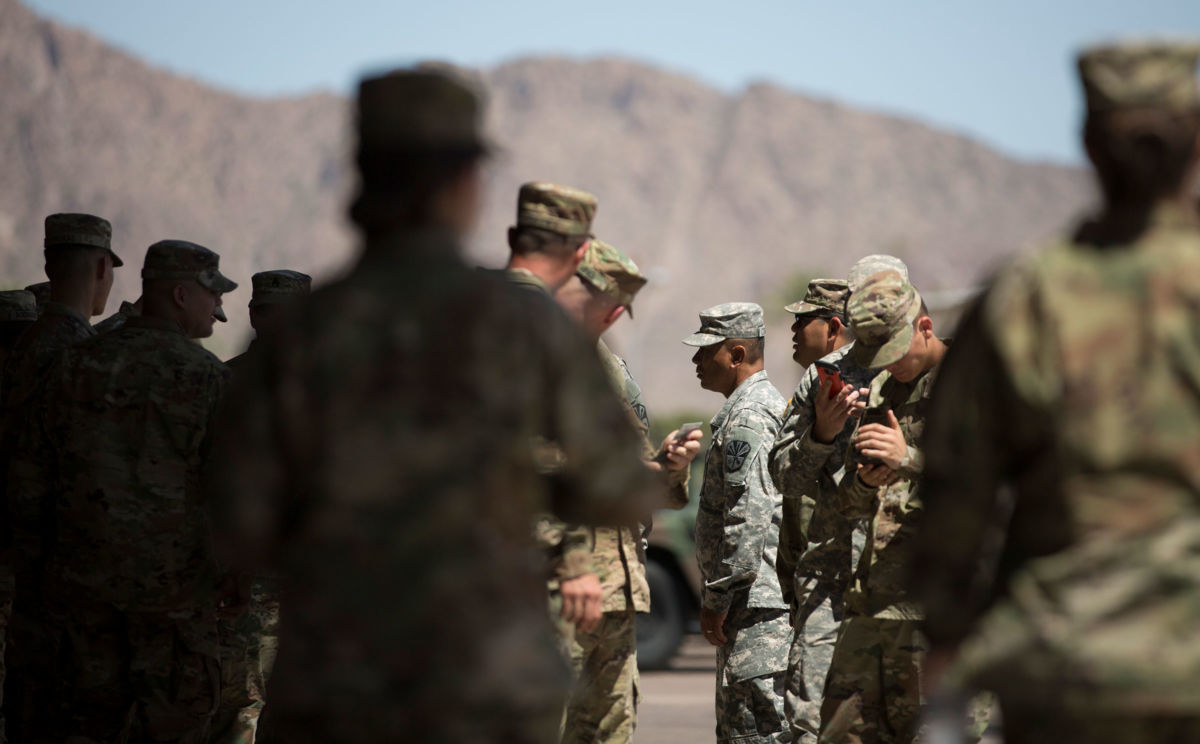Did you know that Truthout is a nonprofit and independently funded by readers like you? If you value what we do, please support our work with a donation.
While the United States suffered through an excruciatingly long State of the Union address on Tuesday, an interesting piece of news quietly dropped: New Mexico Governor Michelle Lujan Grishman ordered most of the National Guard recalled from the border in her state.
It was a sharp rebuke to the president, who has been heatedly insisting that the U.S.-Mexico border is a hotbed of crime that can only be controlled with a wall — or metal barrier. Trump has wasted considerable resources on security theater at the border, and the governor’s move signaled that she was disinterested in being used as a pawn in the ongoing conversation about border security.
Some of the slightly over 100 troops posted at the border will be left in place for humanitarian work, with the governor noting that groups of migrant families in very poor health are in need of medical attention. Troops being used as law enforcement, however, will be sent home — and not just to New Mexico.
Members from units in multiple states wound up at the border, being used effectively as border police, which does not align with the mission of the National Guard and is not a mission they were trained to perform.
The governor referred to the situation as a “charade of border fearmongering” in remarks explaining her decision. To make sure the president got the news, Lujan Grishman also put up a snarky Twitter video, knowing that the platform is Trump’s preferred medium.
This isn’t the first time a governor has rejected the Trump administration’s call for military forces at the border; multiple states, including Republican-led ones, declined to station such troops when asked to do so by the administration. In New Mexico, the stakes are especially clear, as the state houses immigration detention facilities where two children have died in the “care” of Immigration and Customs Enforcement in recent months.
It’s also not just New Mexico that is rejecting Trump’s claims about what is happening at the border, pushing back on his narrative of a “disaster” and noting that the only crisis is a humanitarian one. In Texas, mayors and law enforcement have both stated that they don’t see value in the proposed wall.
Turning the border into a war zone will not improve safety and security, and it can be lethal for people trying to cross; those desperate enough to cross illegally won’t be deterred; they’ll just look for a more remote — and, consequently, dangerous — area.
Of course, most illegal immigration doesn’t take the form of undocumented people crossing the border. The far bigger contributor is people overstaying their visas. Two-thirds of cases involve this scenario, and it’s actually on the rise. Cracking down on the border harms the most vulnerable, including people fleeing physical and sexual violencein nations disrupted by U.S. foreign policy.
This decision is another sign that some states are more willing to flex their muscles and defend their right to make policy decisions that are effective and appropriate for their residents. As the Trump administration pushes for policies that verge on unconstitutional — in addition to being unconscionable — one might argue that states have a duty to stand up to him in the name of defending civil and human rights.
Trump is silencing political dissent. We appeal for your support.
Progressive nonprofits are the latest target caught in Trump’s crosshairs. With the aim of eliminating political opposition, Trump and his sycophants are working to curb government funding, constrain private foundations, and even cut tax-exempt status from organizations he dislikes.
We’re concerned, because Truthout is not immune to such bad-faith attacks.
We can only resist Trump’s attacks by cultivating a strong base of support. The right-wing mediasphere is funded comfortably by billionaire owners and venture capitalist philanthropists. At Truthout, we have you.
Truthout has launched a fundraiser, and we have only 48 hours left to raise $22,000. Please take a meaningful action in the fight against authoritarianism: make a one-time or monthly donation to Truthout. If you have the means, please dig deep.
